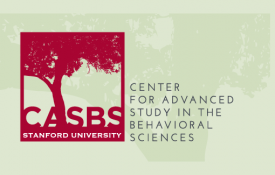-

CASBS Accepting Applications for Residential Fellowships
The Center for Advanced Study in the Behavioral Sciences at Stanford University is now accepting applications for residential fellowships for the 2019–2020 academic year.
-
ADHD numbers are rising, and scientists are trying to understand why
The number of children diagnosed with attention-deficit/hyperactivity disorder (ADHD) has reached more than 10 percent, a significant increase during the past 20 years, according to a new study. The rise was most pronounced in minority groups, suggesting that better access to health insurance and mental-health treatment through the Affordable Care Act (ACA) may have played some role in the increase. The rate of diagnosis doubled in girls, although it was still much lower than in boys. But the researchers say they found no evidence confirming frequent complaints that the condition is overdiagnosed or misdiagnosed.
-
5 Science-Approved Ways to Break a Bad Habit
Having habits can often be a good thing. When you drive to work for example, you don’t need to wonder whether you should turn left or right; the route becomes habit. “We want the brain to learn how to do those things without energy and effort,” says Russell Poldrack, a professor of psychology at Stanford University. “Habits are an adaptive feature of how the brain works.” But sometimes, habits can lead us astray—whether it’s turning to comfort food when we’re sad, or taking a cigarette break when stressed.
-
Having a Growth Mindset Makes It Easier to Develop New Interests
“[T]echnology alone is not enough—it’s technology married with liberal arts, married with the humanities, that yields us the results that make our heart sing.” — Steve Jobs Steve Jobs’s vision for Apple was rooted in the belief that the arts and sciences do not live in isolation. They complement and enhance each other. John Lasseter, chief creative officer at Pixar, echoed this sentiment stating, “Technology inspires art, and art challenges the technology.” But even though integrating these areas can be necessary for innovation, too many people confine themselves to only one. We wanted to understand why some people are more likely to reach across disciplines than others.
-
When Your Phone Sucks You Into the Void, This App Notices
Every night, an hour before bed, I stash my phone inside a drawer in my living room. Most days I retrieve it the following morning, when I'm heading out the door. It's a simple habit, but one that has helped me reclaim some focus from my smartphone—my personal fix for a growing problem that user experience researchers at Google recently called an "attention crisis." Outside the house, though, it's a different story: My phone rarely leaves my side. I reach for it to record an interview, field a slack from my editor, or make plans with family—but succumbing to an Instagram, Twitter, or Facebook binge often leaves me feeling distracted and frazzled.
-

National Science Foundation Welcomes Entries for 2026 Idea Machine Competition
The National Science Foundationis accepting submissions for the NSF 2026 Idea Machine, a competition seeking input on promising new directions in science, technology, engineering, and mathematics research and education.

